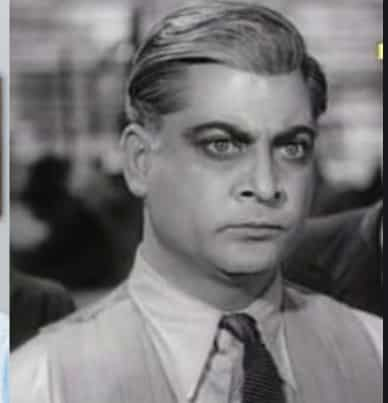Time for a history lesson.
The election battlefield of Karnataka was charged up even further when PM Modi sought to rekindle old wars and attacked the Congress government over its 'disrespect' for former Chief of Army staffs Field Marshall Cariappa and General Thimayya, both celebrated soldiers from Karnataka.
Speaking in Kalburgi, PM Modi was quoted saying by PTI “Forgetting the national heroes, patriots and history is the nature of a family in the Congress. (Jawaharlal) Nehru and V K Krishna Menon insulted General (KS) Thimayya, who had to resign. They neglected General (K M) Cariappa.”
What is PM Modi alluding to? Here’s a trip down memory lane
General KS Thimayya, also lovingly called Timmy, was Chief of Army Staff from 1957 to 1961, ahead of the 1962 Indo-China War. He also headed a UN unit dealing with repatriation after Korean War, and was Commander of the UN Peace Keeping Force in Cyprus from July 1964 to December 1965 and died in Cyprus while on active duty on 18th Dec 1965.
Field Marshal Cariappa was the first Indian commander-in-chief of the Indian Army and one of two army officers to hold the five-star rank of field marshal (along with Sam Manekshaw). Both Cariappa and Thimayya, as PM Modi pointed out, differed with PM Jawaharlal Nehru.
The first CIC of the Indian Army, Field Marshal KM Cariappa’s biography by his son Air Marshal KC Cariappa notes the friction between the two.
General Cariappa led the Indian Army in Kashmir during the first war with Pakistan in 1947, and the author states that his father asked Nehru, why the army didn’t evict the frontier tribesmen supported by the Pak Army. To this Nehru reiterated that the government dictated policy. While the Indian Army was confident of clearing Kashmir, the orders were to ‘cease fire midnight 31st December / 1st January 1948-49’.
Nehru had reportedly told Cariappa: “You see, U.N. Security Council felt that if we go any further it may precipitate a war. So, in response to their request we agreed to a ceasefire. Quite frankly, looking back, we should have given you ten-fifteen days more. Things would have been different then.”
In 1951 (more than a decade before the Indo-China War on 1962), when Chinese troops were caught with maps of North-East Frontier Agency (erstwhile Arunachal Pradesh) showing them as part of Kashmir, Nehru had criticised Cariappa saying: “It is not for the Army to decide who the nation's enemies would be.”
Later in 1959, Gen. K.S. Thimmayya also warned of the threat from China. Nehru, many believed, was under the spell of Defence Minister Krishna Menon, ignored the warnings which would lead to independent India’s humiliating defeat in 1962.
In his book, 1962: The War That Wasn’t Shiv Kunal Verma argued that Nehru wasn’t as military-minded as his Netaji Bose or Sardar Patel. Believing that Nehru viewed the army with suspicion, given the number of military coups that had taken place in post-colonial countries including Pakistan. This led to civil servants taking decisions which they were unfit to take.
Thimmaya felt that Nehru’s arbitrary decision of making the Army responsible for the North East Frontier Agency (NEFA), the responsibility of the Army, was a ‘meaningless gesture’ that ‘compromised the army’.
The author added: “Without providing the additional resources required, handing over the borders to the army was a meaningless gesture; this would allow the Chinese the opportunity to claim that the Indians were the aggressors, for they always went to great pains to describe their own troops as border guards.”
The author further wrote: “Publicly Nehru was seen to be fond of Timmy; however, behind his back, the prime minister adopted tactics that clearly indicated that he viewed Thimayya as a rival who could challenge his position as the undisputed head of the Indian Union.”
This led to what the author called a move of ‘subterfuge and survival’. COAS Thimayya was called by Nehru's Defence Minister Krishna Menon who lambasted the Army Chief, claiming that instead of approaching the prime minister, he ought to have resolved the matter at their level. This led Thimayya to send in his resignation.
PM Nehru persuaded him to stay, however his resignation letter was leaked to the media. Nehru would go on to castigate Thimayya in parliament, reproaching him for ‘wanting to quit amid the Sino-Indian Border Crisis’.
Shiv Kunal Verma adds in his book: “The prime minister’s attitude towards Thimayya was damaging to the chief as well as the army. … General Thimayya was… a seasoned, disciplined soldier who would hardly have made issues over trifles. … After the resignation drama Thimayya was seen as an alarmist and a defeatist. Having thus weakened the office of the army chief, the prime minister now placed his hope in …Lieutenant General B. M. ‘Bijji’ Kaul whose star was on the rise.”
![submenu-img]() Meet Gautam Adani’s ‘right hand’, used to work as teacher, he’s now Rs 1600000 crore…
Meet Gautam Adani’s ‘right hand’, used to work as teacher, he’s now Rs 1600000 crore…![submenu-img]() Meet actor who worked with Amitabh Bachchan, Aishwarya Rai, entered films because of a bus conductor, is now India's..
Meet actor who worked with Amitabh Bachchan, Aishwarya Rai, entered films because of a bus conductor, is now India's..![submenu-img]() Meet Bollywood star, who was a tourist guide, married 4 times, went bankrupt, his son died by suicide, then...
Meet Bollywood star, who was a tourist guide, married 4 times, went bankrupt, his son died by suicide, then...![submenu-img]() This actor made Sharmila Tagore forget her lines, once did film for Rs 100, could never be a superstar because..
This actor made Sharmila Tagore forget her lines, once did film for Rs 100, could never be a superstar because..![submenu-img]() Volkswagen Taigun GT Line, Taigun GT Plus launched in India, price starts at Rs 14.08 lakh
Volkswagen Taigun GT Line, Taigun GT Plus launched in India, price starts at Rs 14.08 lakh![submenu-img]() DNA Verified: Is CAA an anti-Muslim law? Centre terms news report as 'misleading'
DNA Verified: Is CAA an anti-Muslim law? Centre terms news report as 'misleading'![submenu-img]() DNA Verified: Lok Sabha Elections 2024 to be held on April 19? Know truth behind viral message
DNA Verified: Lok Sabha Elections 2024 to be held on April 19? Know truth behind viral message![submenu-img]() DNA Verified: Modi govt giving students free laptops under 'One Student One Laptop' scheme? Know truth here
DNA Verified: Modi govt giving students free laptops under 'One Student One Laptop' scheme? Know truth here![submenu-img]() DNA Verified: Shah Rukh Khan denies reports of his role in release of India's naval officers from Qatar
DNA Verified: Shah Rukh Khan denies reports of his role in release of India's naval officers from Qatar![submenu-img]() DNA Verified: Is govt providing Rs 1.6 lakh benefit to girls under PM Ladli Laxmi Yojana? Know truth
DNA Verified: Is govt providing Rs 1.6 lakh benefit to girls under PM Ladli Laxmi Yojana? Know truth![submenu-img]() Remember Abhishek Sharma? Hrithik Roshan's brother from Kaho Naa Pyaar Hai has become TV star, is married to..
Remember Abhishek Sharma? Hrithik Roshan's brother from Kaho Naa Pyaar Hai has become TV star, is married to..![submenu-img]() Remember Ali Haji? Aamir Khan, Kajol's son in Fanaa, who is now director, writer; here's how charming he looks now
Remember Ali Haji? Aamir Khan, Kajol's son in Fanaa, who is now director, writer; here's how charming he looks now![submenu-img]() Remember Sana Saeed? SRK's daughter in Kuch Kuch Hota Hai, here's how she looks after 26 years, she's dating..
Remember Sana Saeed? SRK's daughter in Kuch Kuch Hota Hai, here's how she looks after 26 years, she's dating..![submenu-img]() In pics: Rajinikanth, Kamal Haasan, Mani Ratnam, Suriya attend S Shankar's daughter Aishwarya's star-studded wedding
In pics: Rajinikanth, Kamal Haasan, Mani Ratnam, Suriya attend S Shankar's daughter Aishwarya's star-studded wedding![submenu-img]() In pics: Sanya Malhotra attends opening of school for neurodivergent individuals to mark World Autism Month
In pics: Sanya Malhotra attends opening of school for neurodivergent individuals to mark World Autism Month![submenu-img]() DNA Explainer: What is cloud seeding which is blamed for wreaking havoc in Dubai?
DNA Explainer: What is cloud seeding which is blamed for wreaking havoc in Dubai?![submenu-img]() DNA Explainer: What is Israel's Arrow-3 defence system used to intercept Iran's missile attack?
DNA Explainer: What is Israel's Arrow-3 defence system used to intercept Iran's missile attack?![submenu-img]() DNA Explainer: How Iranian projectiles failed to breach iron-clad Israeli air defence
DNA Explainer: How Iranian projectiles failed to breach iron-clad Israeli air defence![submenu-img]() DNA Explainer: What is India's stand amid Iran-Israel conflict?
DNA Explainer: What is India's stand amid Iran-Israel conflict?![submenu-img]() DNA Explainer: Why Iran attacked Israel with hundreds of drones, missiles
DNA Explainer: Why Iran attacked Israel with hundreds of drones, missiles![submenu-img]() Meet actor who worked with Amitabh Bachchan, Aishwarya Rai, entered films because of a bus conductor, is now India's..
Meet actor who worked with Amitabh Bachchan, Aishwarya Rai, entered films because of a bus conductor, is now India's..![submenu-img]() Meet Bollywood star, who was a tourist guide, married 4 times, went bankrupt, his son died by suicide, then...
Meet Bollywood star, who was a tourist guide, married 4 times, went bankrupt, his son died by suicide, then...![submenu-img]() This actor made Sharmila Tagore forget her lines, once did film for Rs 100, could never be a superstar because..
This actor made Sharmila Tagore forget her lines, once did film for Rs 100, could never be a superstar because..![submenu-img]() Mumtaz urges to lift ban on Pakistani artistes in Bollywood: ‘Woh log hum logon se...'
Mumtaz urges to lift ban on Pakistani artistes in Bollywood: ‘Woh log hum logon se...'![submenu-img]() Not Kiara Advani, but this actress was first choice opposite Shahid Kapoor in Kabir Singh, she rejected because...
Not Kiara Advani, but this actress was first choice opposite Shahid Kapoor in Kabir Singh, she rejected because...![submenu-img]() IPL 2024: Yashasvi Jaiswal, Sandeep Sharma guide Rajasthan Royals to 9-wicket win over Mumbai Indians
IPL 2024: Yashasvi Jaiswal, Sandeep Sharma guide Rajasthan Royals to 9-wicket win over Mumbai Indians![submenu-img]() IPL 2024: How can RCB still qualify for playoffs after 1-run loss against KKR?
IPL 2024: How can RCB still qualify for playoffs after 1-run loss against KKR?![submenu-img]() CSK vs LSG, IPL 2024: Predicted playing XI, live streaming details, weather and pitch report
CSK vs LSG, IPL 2024: Predicted playing XI, live streaming details, weather and pitch report![submenu-img]() RR vs MI: Yuzvendra Chahal scripts history, becomes first bowler to achieve this massive milestone in IPL
RR vs MI: Yuzvendra Chahal scripts history, becomes first bowler to achieve this massive milestone in IPL![submenu-img]() 'Yeh toh second tier ki bhi team nhi': Ramiz Raja slams Babar Azam and co. after 3rd T20I loss vs New Zealand
'Yeh toh second tier ki bhi team nhi': Ramiz Raja slams Babar Azam and co. after 3rd T20I loss vs New Zealand![submenu-img]() Mukesh Ambani's son Anant Ambani likely to get married to Radhika Merchant in July at…
Mukesh Ambani's son Anant Ambani likely to get married to Radhika Merchant in July at…![submenu-img]() India's most expensive wedding costs more than weddings of Isha Ambani, Akash Ambani, total money spent was...
India's most expensive wedding costs more than weddings of Isha Ambani, Akash Ambani, total money spent was...![submenu-img]() Meet Indian genius who lost his father at 12, studied at Cambridge, took Rs 1 salary, he is called 'architect of...'
Meet Indian genius who lost his father at 12, studied at Cambridge, took Rs 1 salary, he is called 'architect of...'![submenu-img]() Earth Day 2024: Google Doodle features aerial photos of planet's natural beauty, biodiversity
Earth Day 2024: Google Doodle features aerial photos of planet's natural beauty, biodiversity![submenu-img]() Meet India's first billionaire, much richer than Mukesh Ambani, Adani, Ratan Tata, but was called miser due to...
Meet India's first billionaire, much richer than Mukesh Ambani, Adani, Ratan Tata, but was called miser due to...






































)




)
)
)
)
)
)